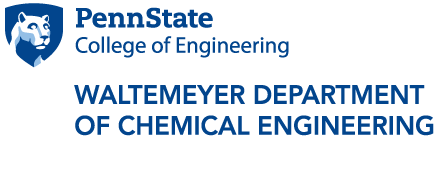Graduate Minor in Chemical Engineering
A minor in chemical engineering is available to both M.S. and Ph.D. students who are enrolled in related fields of study. Successful completion of the minor requires 9 or 15 credit hours of coursework, respectively, in CHE courses with a final grade of B or better.
Requirements for the M.S. Minor
(3) credits in 500-level thermodynamics courses
(3) credits in 500-level reaction engineering courses
(3) credits in 500-level transport courses
Independent study courses (CH E 496 and CH E 596) are laboratory classes and do not satisfy minor requirements.
All 9 credits must be passed with a grade or B or better.
The chair of the graduate program will have the responsibility of approving the specific courses that the student selects to fulfill the requirements of the minor.
Requirements for the Ph.D. Minor
(3) credits in 500-level thermodynamics courses
(3) credits in 500-level reaction engineering courses
(3) credits in 500-level transport courses
(6) additional credits of 500-level courses in chemical engineering (or related fields)
Independent study courses (CHE 496 and CHE 596) are laboratory classes and do not satisfy minor requirements.
All 15 credits must be passed with a grade or B or better.
A member of the graduate faculty of the Department of Chemical Engineering is required to be a member of the student’s doctoral committee. This faculty member will have the responsibility of approving the specific courses that the student selects to fulfill the requirements of the minor.
Contact information:
- Graduate Admissions Committee
ChEGradOffice@engr.psu.edu
Related links:
- Frequently Asked Questions
- Graduate Minors
- Graduate Handbook
- Student Organizations
- Graduate Student Life
- Funding and Fellowships
- Check an Existing Application


